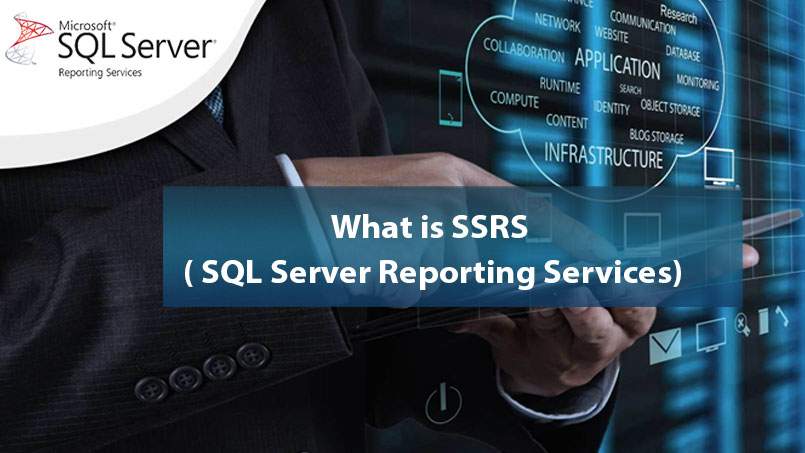
What is SSRS? What It Can Do and Reasons to Choose
What is SSRS? SSRS Stands for SQL Server Reporting Services.
SSRS is a reporting platform through which one can easily form the reports in the formatted table manners in images, graphs, charts, and data form. The parameters are defined in the reports to use anytime and are hosted on the server. Data is the major requirement of the business world with the advancement in technical advancement. The meaningful data is used by the companies to get an insight for timely decisions and strategically placed business tactics.
In order to make business decisions, it is essential to have a proper report in an intuitive and informative way. This makes organizations opt for SQL Server Reporting Server that is also known as SSRS.
Table of Contents
What is SSRS?
SSRS is a business reporting tool that offers server-based, unified, scalable, and extension platform to users to present & deliver data. The traditional paper reports are replaced by interactive and web-based delivery content.
It can be used to share files, email sharing, deliver reports, and configure data. SSRS generates reports in several formats including desktop application (CSV and Microsoft Excel) and web-oriented HTML (Hypertext Markup Language).
Users can manipulate information as per the format requires and present it in the corporate portals through SharePoint that work in the SSRS front end. SSRS is the part of Microsoft Business Intelligence that is used to analyze enterprise data.
Reasons to use SSRS Tool
There are a number of reasons to use the SSRS tool such as:
1. SSRS is better and faster tools used for the multidimensional and relational data to process reports as compared to Crystal Reports.
2. It allows exporting reports in different formats that can be sent out through emails.
3. Accurate decision making can be availed with the help of detailed reports.
4. The users and information can easily interact without any requirement of IT professionals or third-party.
5. The security features are hosted in SSRS that can control and access the data in the form of reports.
Working of SSRS
SSRS works as per the fixed component pattern of end-users, SSRS Server, and Data Source. The report request, data request, return, and reports are the basic form of the working that bridge the gap between three components.
1. The report users send the request to get an insight into the SSRS Server.
2. The metadata is scanned in the SSRS Server of the report and the request is sent further to the data sources.
3. Once the data source merges the data together, it is returned in the report form.
4. At last, the data is generated in the form of a report for the client.
When the report that the software provides by default is too simple or does not fit the particular needs of the company, the SQL Reporting Services platform allows us to expand and customize the functionality of the reports.
Advantages of SSRS
1. OBTAINING DATA:– Reporting Services can extract information from any data source. Unlimited. Naturally, it communicates with SQL Server, but you can also access third-party databases such as MySQL, Oracle, Informix, etc. In the case of Reporting Services 2005, you can also consult Analysis Services.
2.REPORT DESIGN:– In the current versions, Reporting Services incorporates by default Microsoft SQL Report Builder, a very simple tool to use – as if it were a Word – and, instead, with a lot of power to make the reports.
3. REPORT EXPORT:– The Ms platform presents a wide range of file formats to be able to export to the final consumer. Among them, PDF, XLS, HTML, CSV
4. SUBSCRIPTION TO REPORTS:- Subscribing to SSRS allows you to run specific reports and define delivery date via mail to the specified account and even with a defined format or deliver reports to folders or websites.
Disadvantages of SSRS
1. Complex Tuning: It will be difficult for query optimization and performance tuning for the experts of data who don’t know much about the specific field. But in reality, it is not a problem if you are a beginner since you do not have any queries in itself too much (unless you do not work in large data sets).
2. Lack of native support for source code control. SQL Server is a source of energy for the country. In order to keep all changes made to the database, you must use third-party tools.
Conclusion
This article briefly reviewed the reporting tools available in the Microsoft location. It covered the advantages and disadvantages of SSRS and involved itself in ideal use cases. SQL Server is an influential component of the Microsoft data and business intelligence aura. However, SQL and relational databases are becoming day-by-day essential in our data-based business world as it is essential that companies can manage, manipulate and query data as quickly and much effectively as possible.

